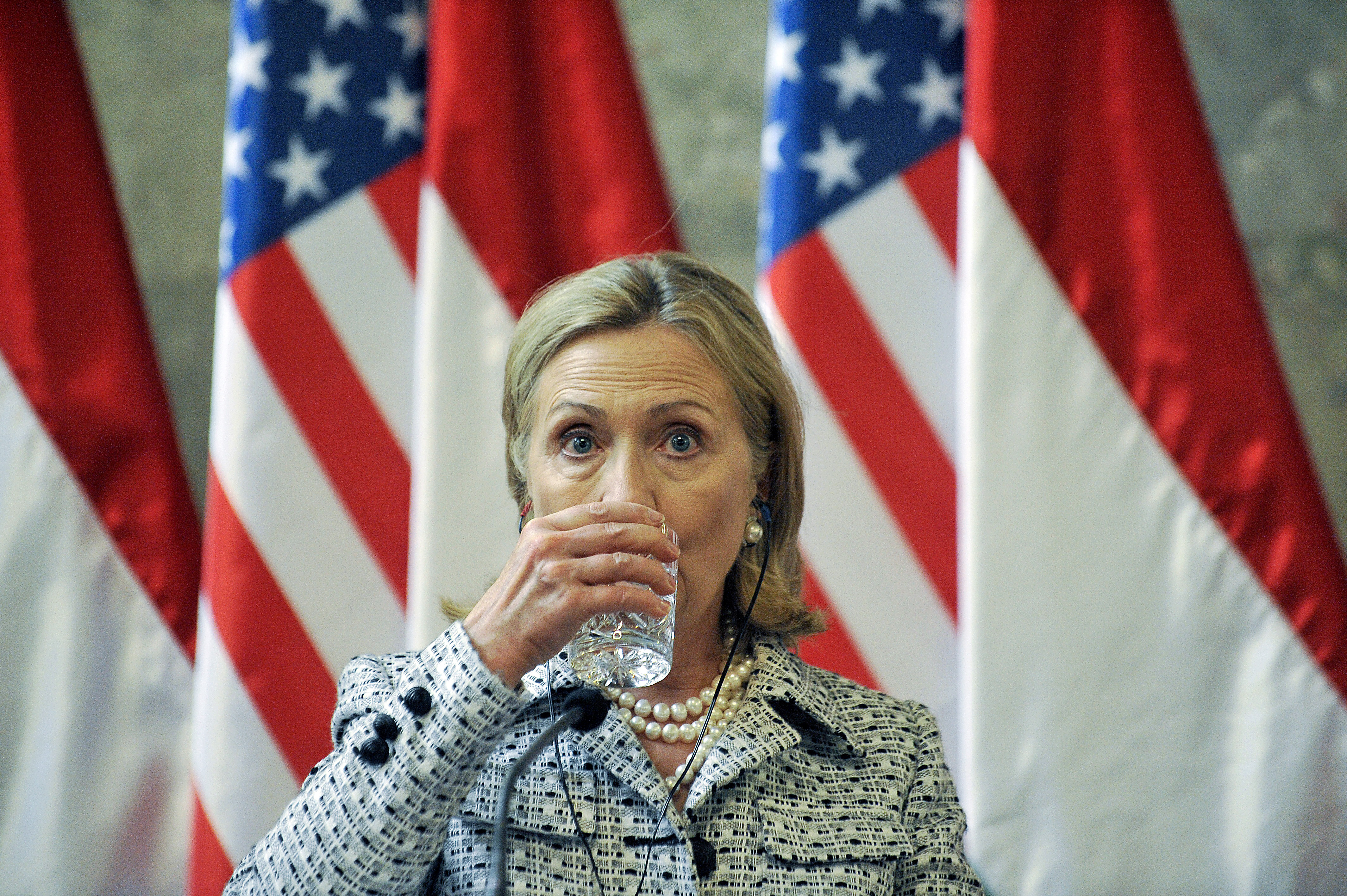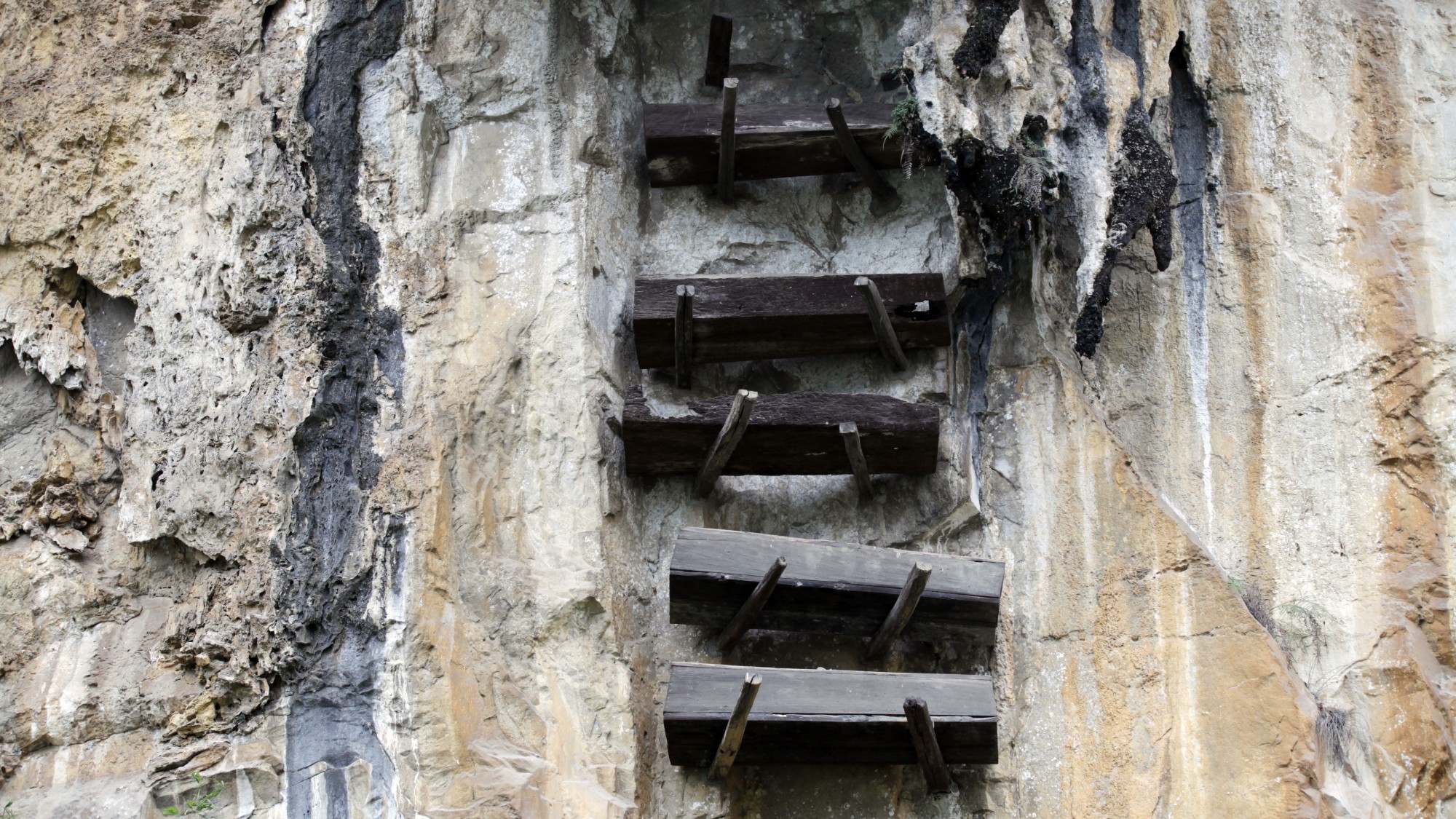In Hillary Clinton's defense, water is dumb
Drinking water is a tasteless, boring chore. Don't pretend you like it.


Drinking water is one of the dumber necessities of being human, kind of like showering regularly, or the fact that we must devote a third of our lives to being unconscious, or that we have to go to the dentist every six months.
I know, I know: Water has been at the center of some of the year's most important debates, in Flint and with the Standing Rock Sioux Tribe. Access to potable water is one of the great humanitarian crises we face. Some scientists even say that in the future, we could live in a Mad Max-like reality where wars are fought over drinkable water.
But you know what? The probable future leader of the free world agrees with me: Actually drinking water? It's a bore:
The Week
Escape your echo chamber. Get the facts behind the news, plus analysis from multiple perspectives.

Sign up for The Week's Free Newsletters
From our morning news briefing to a weekly Good News Newsletter, get the best of The Week delivered directly to your inbox.
From our morning news briefing to a weekly Good News Newsletter, get the best of The Week delivered directly to your inbox.
Clinton's pneumonia isn't severe, according to two people with direct knowledge of the candidate's condition, and she is expected to return to the campaign trail as early as this week. The real issue is chronic dehydration, exacerbated by her lung problem and Clinton's reluctance to drink water, which has become a source of tension with her staff."She won't drink water, and you try telling Hillary Clinton she has to drink water," said a person in her orbit — who described a frenzied rehydration mission that included multiple bottles of water and Gatorade. [Politico]
This revelation is vastly more effective with me than all of Clinton's previous strained attempts at being relatable: I too have to force myself to remember to perform the life-giving function of drinking water. It is not uncommon to hear my mother/boyfriend/friends bark "drink something!" at me across a table, and for me to hem and haw before eventually mustering a sip.
Yes, yes, I see you there, piously clutching your 32-ounce wide-mouth BPA-free Nalgene and giving me the stink-eye. First of all, calm down. There is no scientific evidence to back up the "eight glasses a day" adage. "Contrary to many stories you may hear, there's no real scientific proof that, for otherwise healthy people, drinking extra water has any health benefits," Aaron E. Carroll wrote for The New York Times, adding that "you don't have to consume all the water you need through drinks. You also don't need to worry so much about never feeling thirsty. The human body is finely tuned to signal you to drink long before you are actually dehydrated."
Still, that hasn't stopped water drinking from becoming a political issue long before Clinton ever turned her nose up to an Aquafina. Michelle Obama promoted drinking water in her 2013 "Drink Up" campaign: "Even just one more glass a day," the first lady implored.
No.
A free daily email with the biggest news stories of the day – and the best features from TheWeek.com
Water is extremely boring to drink. It tastes like nothing (don't email me, Nestlé). If it is even slightly warm, it's gross. (Hot water is okay if it is going to become tea or coffee. Hot chocolate must be made with milk). The only tolerable way to drink water straight is if it is cold and clacking with ice cubes and it is 96 degrees outside — then drinking water is okay. But only okay.
When it comes to discerning between kinds of waters themselves, the only bad opinion is that seltzer is good; all other water is just dull.
Nobody truly finds drinking water an exciting or particularly enjoyable task; getting down the requisite amount of liquid is just a chore to keep our bodies chugging. In fact, drinking water can be fraught with danger:
Being dehydrated is, I concede, bad. "Rarely, but on more than one occasion, over the last many, many years, the same sort of thing's happened to [Clinton] where she just got severely dehydrated," Bill Clinton recalled after Hillary woozily wobbled into a car to vacate the 9/11 memorial on Sunday.
So ... don't do that. But dehydration isn't as common as bottled water companies want you to believe. "Bottled water has [...] been marketed down Americans' throats. In order to distinguish a product that is often indistinguishable, the industry has bombarded consumers with a plethora of clever campaigns, which depict exotic springs, far-off mountains, and fresh, untapped streams of natural water," The Washington Post reports in an article with the pull-no-punches headline "America's growing love affair with the most wasteful thing to drink there is."
The average person in the United States now consumes more than 35 gallons of bottled water per year, according to data from market research firm Beverage Marketing Corp. That's about 270 bottles, and more than twice as many as people drank 15 years ago. And that number is only going to go up: By 2017, the average American is expected to drink almost 300 bottles annually. [The Washington Post]
By one estimate, only one in five disposable water bottles in the U.S. actually gets recycled; the rest take between 400 and 1,000 years to decompose. San Francisco recently banned plastic water bottles altogether, and other cities are looking to follow.
But back to that whole dehydration thing: "Real dehydration, when your body has lost a significant amount of water because of illness, excessive exercise or sweating, or an inability to drink, is a serious issue," Carroll explained in The New York Times. "But people with clinical dehydration almost always have symptoms of some sort. A significant number of advertisers and news media reports are trying to convince you otherwise. The number of people who carry around water each day seems to be larger every year."
In response to Michelle Obama's vague Drink Up campaign, The Atlantic's James Hamblin suggested a different way to think about water:
Replace soda with water, yes. Remember that too much water can still be bad, though, and for most people we have no reason to believe that an extra glass of water will result in health benefits. Drinking a glass of water certainly shouldn't replace otherwise healthy behavior or give anyone a sense of confidence in their health that justifies subsequent unhealthy behavior. When you're thirsty, yes, choose water over something with empty calories. If you're thirsty from morning until night, figuratively or otherwise, see a doctor. Don't let anyone who doesn't know how much water you drink tell you to drink more water. [The Atlantic]
So turn your nose up all you want, Hillary. And me? I'll keep on avoiding those fountains of youth and pristine, untouched nectars of polar glaciers and island springs. Sorry, mom.
Jeva Lange was the executive editor at TheWeek.com. She formerly served as The Week's deputy editor and culture critic. She is also a contributor to Screen Slate, and her writing has appeared in The New York Daily News, The Awl, Vice, and Gothamist, among other publications. Jeva lives in New York City. Follow her on Twitter.
-
 The curious history of hanging coffins
The curious history of hanging coffinsUnder The Radar Ancient societies in southern China pegged coffins into high cliffsides in burial ritual linked to good fortune
-
 The Trump administration says it deports dangerous criminals. ICE data tells a different story.
The Trump administration says it deports dangerous criminals. ICE data tells a different story.IN THE SPOTLIGHT Arrest data points to an inconvenient truth for the White House’s ongoing deportation agenda
-
 Ex-FBI agents sue Patel over protest firing
Ex-FBI agents sue Patel over protest firingspeed read The former FBI agents were fired for kneeling during a 2020 racial justice protest for ‘apolitical tactical reasons’
